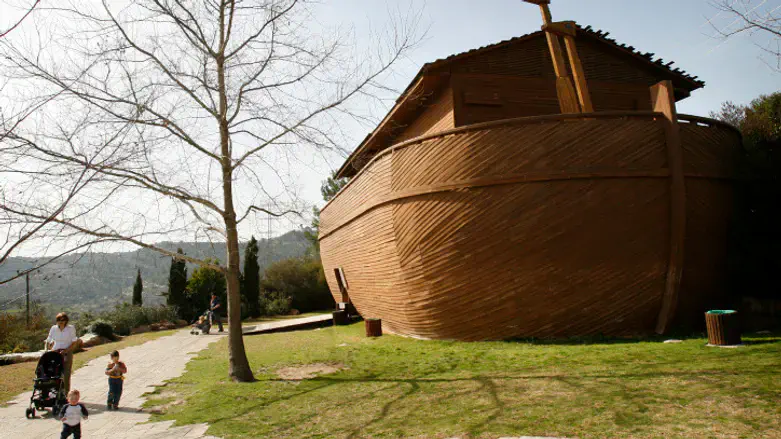
Dedicated in memory of Former Memphis Rosh Kollel (2008–2011) Captain (Res.) Rabbi Avi Goldberg Hy'd who fell in a heroic battle in Lebanon on Shabbat Breshit, 24th of Tishrei. An outstanding Shaliach, family man, Rabbi, educator and musician.
May his memory be blessed
יהי זכרו ברוך
Dedicated in memory of Yaakov ben Avraham and Sarah Aharonov z"l
Rabbi Baruch Weintraubis a former Sgan Rosh Kollel in Toronto (2011-2014) and currently Rabbi of Kehilat Mevaser Tzion, Tel-Mond
Noah spent an entire year inside the ark. If the sole purpose had been to protect Noah, a massive flood that killed everyone else while Noah survived would have sufficed. It seems clear that the stay in the ark was also meant to educate, not just to save. This is also evident from the Midrash Tanchuma:
"And what was he praying? 'Bring my soul out of prison.' The Holy One, Blessed be He, said to him: 'It is My decree that twelve months must be completed. If they are not completed, you cannot leave.'"
So, what was life like inside the ark?
The Torah doesn't tell us. In rabbinic literature, we find various midrashim. But from most of them, a similar picture emerges: While Noah was protected, throughout the twelve months Noah was in the ark, he walked on snakes, and they did not harm him, as it is said, "You will tread upon the lion and the cobra" (Psalms 91:13). The light came from the precious stone (Yalkut Shimoni, Parshat Noah, 57).
It was certainly not a leisurely retreat. Many midrashim emphasize Noah's tremendous effort, not closing an eye (Genesis Rabbah 31:14), some highlight the difficulties in caring for the animals (Sanhedrin 108), with the climax being the midrash brought by Rashi, describing how Noah was bitten by a lion.
Perhaps one midrash in Genesis Rabbah clarifies the point:
"To everything there is a season, and a time for every purpose under heaven" (Ecclesiastes 3:1). There was a time for Noah to enter the ark, as it is said, "Come, you and all your household, into the ark" (Genesis 7:1), and there was a time for him to leave it, as it is said, "Go out from the ark" (Genesis 8:16). It is like a leader who left his place and appointed another in his stead. When he returned, he said to him, "Leave your place." It is like a scribe who went to another place and appointed another in his stead. When he returned, he said to him, "Leave your place." So too, Noah: "Go out from the ark." But he did not accept to leave. He said, "I will go out and be fruitful and multiply for a curse." Until the Omnipresent swore to him that He would not bring another flood upon the world, as it is said, "For this is like the waters of Noah to Me; for as I have sworn that the waters of Noah should no more go over the earth" (Isaiah 54:9).
The Holy One, Blessed be He, like that leader or scribe, actually leaves Noah to be responsible for the world; the role that is usually G-d's, to sustain from the horns of wild oxen to the eggs of lice, suddenly becomes Noah's responsibility.
And here a transformation occurs – the same Noah who before the flood did not see fit to plead for his generation, now stands, according to the midrash, and demands a promise that there will be no more destruction. It is possible, of course, that the reason for this is that now they are all his descendants. But it seems the reason is deeper – just as G-d teaches Jonah compassion when He tells him that He cares about the plant that Jonah did not labor for, so too G-d teaches Noah the importance of the world by appointing him over it. Taking responsibility is what puts Noah in a position where he learns to care for the world.
It seems that this is not a lesson for Noah as a private individual. The punishment of the flood came as a result of violence, of social disintegration, but immediately before it, the verse about the sons of G-d taking from the daughters of men as they chose is mentioned; that is, the social elites used their status as a means of gaining benefit instead of caring for the proper existence of society – and this is what allowed ordinary people to steal and commit violence.
Through Noah's stay in the ark, G-d teaches humanity an important lesson – they themselves are responsible for preserving society; G-d will indeed provide the guiding principles, but it is upon the shoulders of human beings that the task of establishing a stable and just social world rests.
For comments: baruchwin@gmail.com